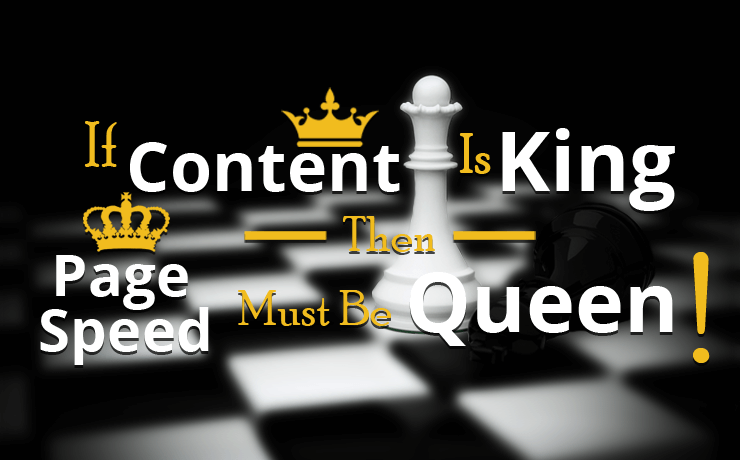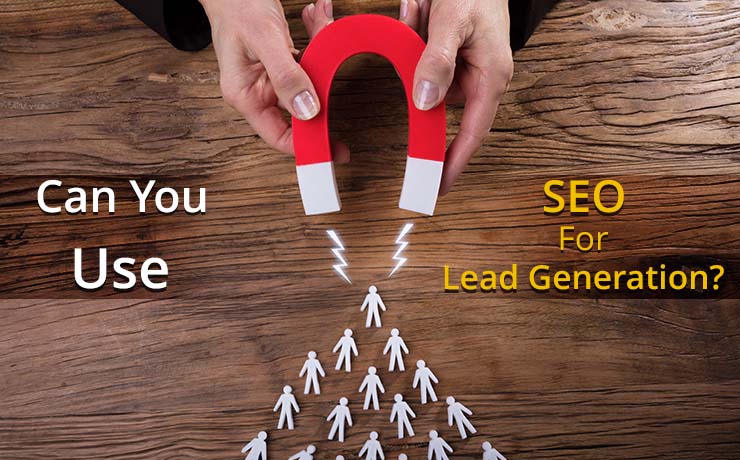If Content Is King Then Page Speed Must Be Queen!

Chad Faith
Director of Content

Today, webmasters understand the need to put up unique, informative content on their websites in order to woo Google’s favor. Everyone says content is King, so I wonder who is the Queen? Well, I was queuing up for some donuts at Dunkin’ the other day but the wait was killing me. I hopped to a lesser-known donut brand nearby and got my donuts within 3 minutes. From this, we can infer that speed determines my buyer’s experience. We can certainly use this to understand the user experience online. And so… page speed is Queen!
Why Page Speed is Important
The key to this question is user experience. Every website’s job is to provide quality content and while at it, you have to make sure that your audience enjoys the time they spent on your site. In a world where everything is moving fast, speed is the key to success. You may want to convert your traffic into leads – being slow just won’t cut it. Here are the reasons why you should make page speed optimization a priority in 2014:
Google is Using Page Speed to Assess Organic Rankings
Going back all the way to 2010, Google has already included site speed into their search ranking algorithms. The weird thing is that it hasn’t been given much priority until now. Now, slow loading pages has never improved indexation. If the Googlebot does not crawl your pages for a few days or even weeks, it is sure that your rankings will suffer and you will notice it even more for a large website. Bottom line is with faster site speed, you get more pages indexed by Google. You will also gain higher potential to increase traffic.
Although a fast loading page does not guarantee you the number one spot, it gives you an edge up on Google. Just imagine your site has the same authority and relevance with another competitor’s site. Page speed will be the breaking factor that decides which site comes first in organic rankings.
Page Speed Enhances the User Experience
We have talked about how user experience is such a critical component for your incoming traffic. Imagine that your website has ranked well enough to attract visitors coming to your doorstep, you do not want to lose them by making them wait for your pages to load. More often than not, they will hit the “back” button if your page speed isn’t up to the mark.
The User Experience on Mobile Devices Matters Even More Today
The consumer media has evolved today and many people are doing things on the go. Besides optimizing your website’s page speed for desktops, make sure that you also optimize your site performance for mobile devices. You know for a fact that many clicks are coming through from mobile search, right? So, put in responsive design for mobile and please your audience accessing from their smartphones.
Better Page Speed Equates to Higher Conversions
Studies have proven that slow loading pages can kill your conversion efforts by 2% per second. The public wants access to your content fast. If they are halted by slow page speed, you will lose them and see a lower conversion rate from your traffic.
Page Speed Helps You Save Money for AdWords
If you are an Adwords user, be warned that page speed actually affects your Quality Score. Google gives a better score to better performing landing pages and page speed is naturally a component that Google uses to consider this. The Quality Score also drives your CPC so I bet you didn’t imagine that page speed can actually help you save money for your advertising endeavors under AdWords!
Remember this equation: Higher Page Speed = Higher Quality Score = More Efficient Spend = Better Reach
So, How Do You Optimize Your Page Speed?
By now, you should realize how important page speed is. To optimize your page speed, there are a few things you can do:
Caching:
You might have a content management system like WordPress on your site. Whenever a user lands on your website, a query will be made to the database to deliver the website. This step negatively adds to your page load speed so you should employ caching solutions to pull up your site as a static page. To let your website look fresh, you can set it to cache only for a specific time period.
Hosting:
If you are using a shared hosting package, it is really hard to optimize your page speed as best as it could go. Consider changing to dedicated server hosting or VPS hosting. This is so that you attain dedicated resources to help your site load faster and run better. If the servers are physically located in where your main targeted traffic market is, this is a big plus.
Content Delivery Network (CDN):
You can reduce your page speed by using a CDN. This is recommended for sites with lots of huge images and videos. CDNs come in both free and paid versions.
Site Content and Code:
Optimize your website code and content for it to run efficiently. Things you can do include cleaning up your CSS files to remove redundant code, using text to replace static images, and making images compressed on your site.
WordPress Resources for Improving Page Speed
Here is a list of helpful WordPress plugins that you can use for increasing your page speed. To better utilize these resources, you have to test each plugin so that conflicts will not occur with other plugins you are using. Also, read the documentation thoroughly. Most people leave this to their SEO solution providers but if you are on your own, here you go:
- For caching: W3 Total Cache, Quick Cache and WP Super Cache
- For reducing HTTP requests: SpriteMe.org and JS and CSS Optimiser
- For compressing: WP HTTP Compression and WP Minify
- For reducing image size: CW Image Optimizer and WP-Smush.it
- For checking performance of plugins: P3 Performance Profiler
- For optimizing database: WP-DB Manager
- For using a CDN: jsDelivr plugin, Maxcdn and WP Booster
Summary
If you are making an investment in content today, you definitely have to marry this investment with improving your page speed too. With so many benefits from better page speed, this makes it justifiable to set aside a budget to improve your page speed and improve the user experience for your website today. So now you know why content is King and page speed is Queen!









